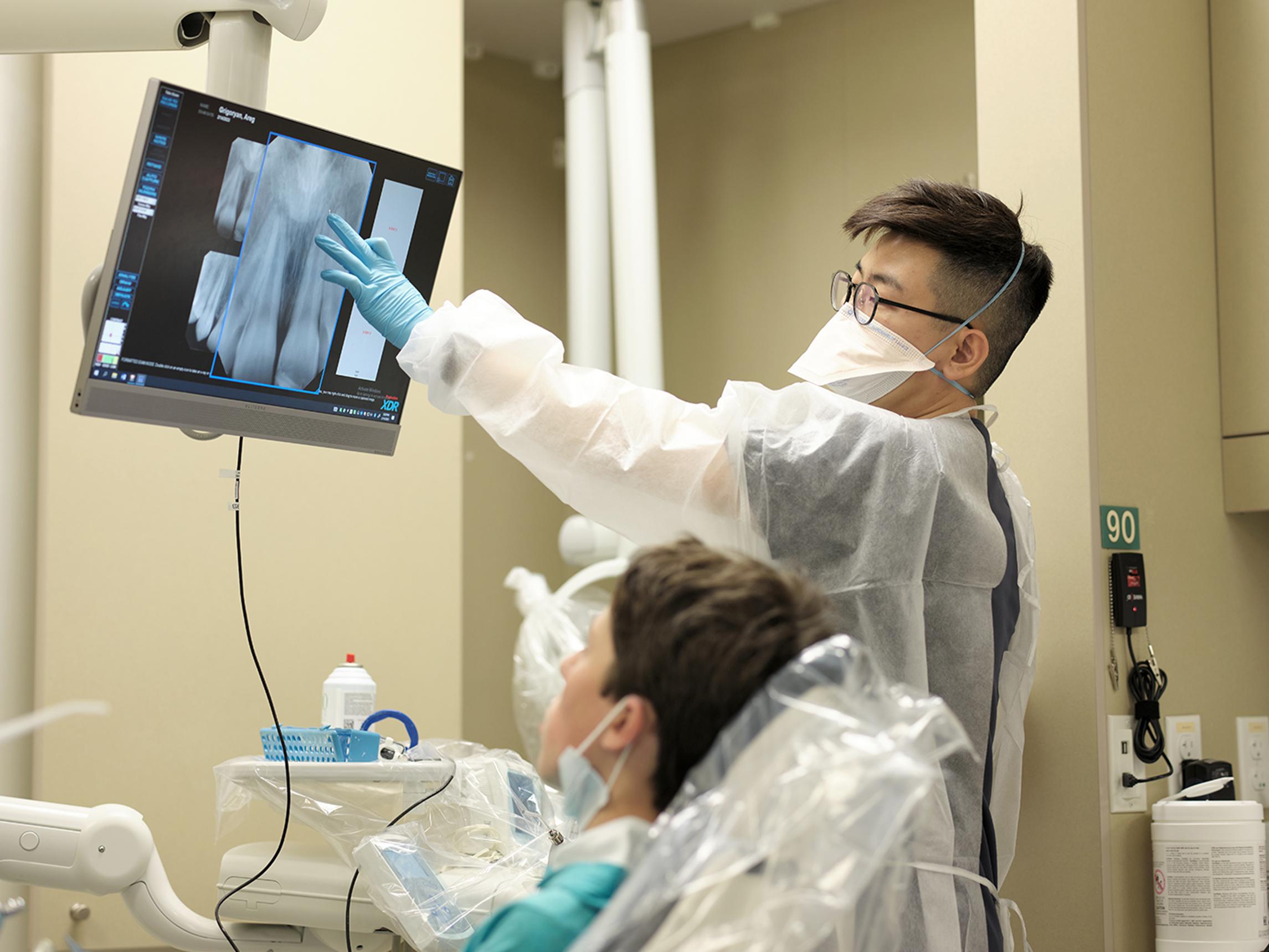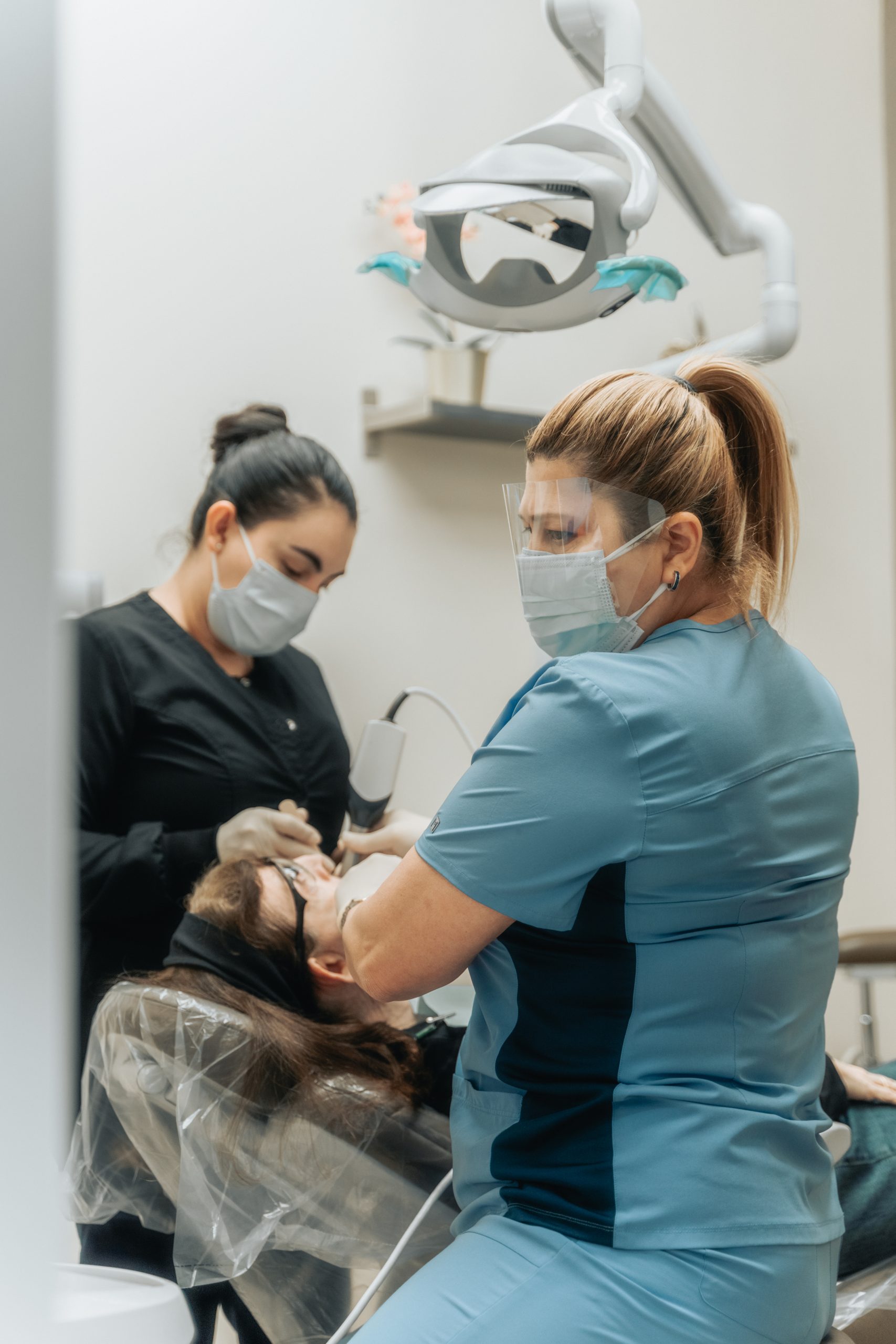Discover the Top Dentist Eugene Oregon Locals Count On for Exceptional Care
Discover the Top Dentist Eugene Oregon Locals Count On for Exceptional Care
Blog Article
Learn More About Regular Oral Worries Your Dental Expert Can Resolve
Comprehending constant dental problems is crucial for preserving optimum oral health and wellness. Problems such as tooth cavities, gum illness, tooth sensitivity, negative breath, and tooth degeneration are common yet frequently ignored up until they become severe. Normal dental brows through and customized treatment strategies can address these issues effectively, ensuring a healthier and brighter smile.
Dental Caries
Tooth cavities, likewise called tooth decays, are a widespread oral health and wellness issue created by the demineralization of tooth enamel as a result of acid production from microbial plaque. This procedure begins when bacteria in the mouth metabolize sugars and starches from food, generating acids that wear down the enamel. Otherwise dealt with promptly, this erosion can penetrate deeper into the tooth, influencing the dentin and ultimately the pulp, potentially leading to extreme discomfort and infection.
The onset of dental caries development frequently existing as white places on the tooth surface area, suggesting initial demineralization. As the procedure progresses, these areas can establish into black or brownish sores, signifying a lot more comprehensive degeneration. Regular oral check-ups are critical for early discovery, as dental caries in their incipient stages can be treated with remineralization methods, such as fluoride treatments.
Once a dental caries has actually formed, corrective intervention is needed. Dental experts usually remove the decayed section of the tooth and load the cavity with materials such as composite material, amalgam, or ceramic. In more serious cases, a crown or root canal therapy may be needed. Safety nets, including good oral hygiene techniques and dietary alterations, play a crucial duty in alleviating the threat of tooth cavities.
Periodontal Condition
While tooth cavities represent a substantial concern for dental wellness, an additional essential problem that demands attention is periodontal disease. Also referred to as gum condition, gum disease is an inflammatory condition impacting the cells surrounding and supporting the teeth. It is mostly brought on by the accumulation of plaque-- a sticky film of microorganisms that bases on teeth.
Gum condition proceeds with stages, starting with gingivitis, characterized by soreness, swelling, and bleeding gum tissues (eugene dentist). If left without treatment, gingivitis can rise to periodontitis, where the inner layer of the periodontal and bone pull away from the teeth, forming pockets that come to be contaminated. In time, the toxins created by the microorganisms break down the bone and connective cells that hold teeth in location, possibly leading to missing teeth
Very early detection and therapy are vital. Expert oral cleanings and improved oral health methods, such as brushing two times everyday and flossing, can manage gingivitis. For advanced stages, therapies may consist of scaling and root planing, anti-biotics, or even medical treatments.
Routine oral check-ups play an essential role in protecting against and handling periodontal condition. Dental practitioners can determine early indicators and suggest appropriate treatments, guaranteeing the upkeep of healthy periodontals and total oral health and wellness.
Tooth Sensitivity
Tooth sensitivity influences millions of people worldwide, providing a common yet often upsetting oral concern. This condition emerges when the enamel, the outer safety layer of the teeth, is endangered, exposing the underlying dentin. The dentin includes tiny tubules that lead directly to the dental pulp, where nerves live. When revealed to stimuli such as warm, cold, wonderful, or acidic compounds, these nerves are activated, creating sharp discomfort or pain.
Several factors add to enamel erosion and subsequent tooth sensitivity, including hostile cleaning, acidic foods and beverages, gum tissue recession, and bruxism (teeth grinding) Furthermore, oral procedures such as teeth bleaching can momentarily heighten sensitivity.
Halitosis
An additional common oral issue that impacts individuals' everyday lives is poor breath, clinically called halitosis. Halitosis typically originates from bad dental health, which permits food fragments to remain in the mouth, cultivating microbial development.

Dental professionals play a crucial duty in identifying and dealing with halitosis. They can recognize the root cause through a detailed exam and supply tailored advice and treatment strategies. Suggestions may involve enhancing oral hygiene practices, such as normal cleaning and flossing, making use of antibacterial mouth washes, remaining hydrated, and addressing any kind of oral issues. Sometimes, a referral to a specialist may be needed to tackle underlying health issue adding to foul breath. Reliable management of halitosis not only enhances dental wellness however also substantially boosts lifestyle.
Dental Caries

Preventing dental cavity involves a combination of excellent oral health techniques and regular oral check-ups. Cleaning teeth a minimum of two times daily with fluoride tooth paste, flossing to remove plaque in between teeth, and restricting the intake of sweet foods and beverages are important preventative steps. Fluoride treatments, oral sealants, and expert cleansings offered like this by a dental professional can also play a considerable function in strengthening enamel and avoiding decay.
Dentists can eliminate decayed cells and restore the tooth with fillings made from products such as composite material, amalgam, or porcelain. By resolving tooth decay without delay, dental professionals why not try here aid preserve dental framework and function, guaranteeing long-lasting dental wellness.
Final Thought
Dealing with typical dental issues such as dental caries, periodontal disease, tooth level of sensitivity, negative breath, and dental caries is essential for maintaining optimum oral health and total wellness. Dental practitioners possess the proficiency to diagnose and treat these problems successfully, ensuring customized treatment for each client. Regular oral exams and safety nets are necessary in recognizing and taking care of these issues early, advertising a healthier and a lot more confident smile over a lifetime.

Tooth degeneration, additionally understood as dental cavities, takes place when the enamel, the outermost layer of the tooth, is worn down by acids produced by bacteria in the mouth. Brushing teeth at least two times daily with fluoride tooth paste, flossing to get rid of plaque between teeth, and restricting the intake of sugary foods and drinks are crucial preventative steps.Dealing with typical dental worries such as dental caries, gum condition, tooth level of sensitivity, poor breath, and tooth degeneration is crucial for maintaining ideal dental health and general well-being.
Report this page